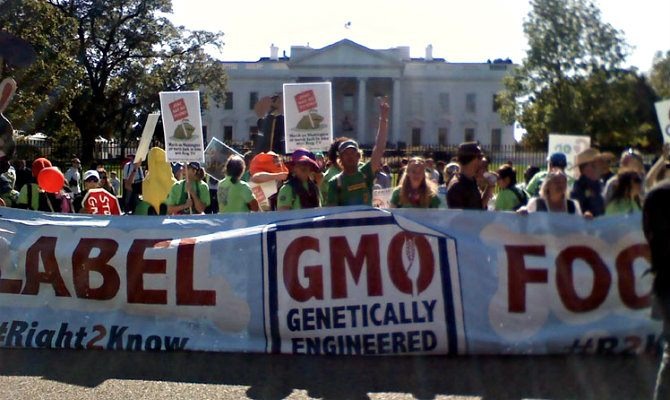The House Has Passed A Bill That Bans Mandatory GMO Labeling
The House of Representatives has officially passed The Safe and Accurate Food Labeling Act of 2015, which bans mandatory GMO labeling and puts into effect a policy of voluntary GMO labeling instead. The federal law officially overrides Vermont's GMO-labeling bill, which would have gone into effect in 2016. Vermont was the only state in the union to pass such a law, although Maine and Connecticut would also pass a mandatory GMO-labeling law if their neighboring states did the same.
The House of Representatives, which voted in favor of voluntary GMO labeling 275 to 150, is backed by the food industry — specifically the Grocery Manufacturers Association and Monsanto Company — which has fought tirelessly to keep mandatory label laws off the books. Monsanto alone has spent $6.3 million to fight against individual state GMO campaigns. The food industry claims that 75 to 80 percent of foodstuffs we see in our grocery stores contain genetically modified ingredients, like corn and soy. The FDA has also said that GMOs are safe.
Opponents of the bill say that Americans still have a right to know what's in their food.
"American families deserve to know what they are eating and feeding to their children," Rosa DeLauro (D-Conn) told The Hill blog. "The FDA already requires clear labeling of over 3,000 ingredients, additives, and food processes. GMOs should be no different."
However, supporters of the law say that because the government says that GMOs are safe, and that since there is no absolute direct link between genetically modified foods and health hazards, mandatory labels are unnecessary.
"Precisely zero pieces of credible evidence have been presented that foods produced with biotechnology pose any risk to our health and safety," Mike Pompeo (R-Kan.) said. "We should not raise prices on consumers based on the wishes of a handful of activists."
